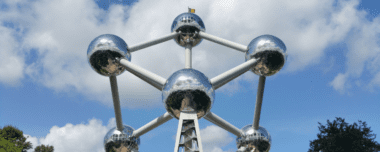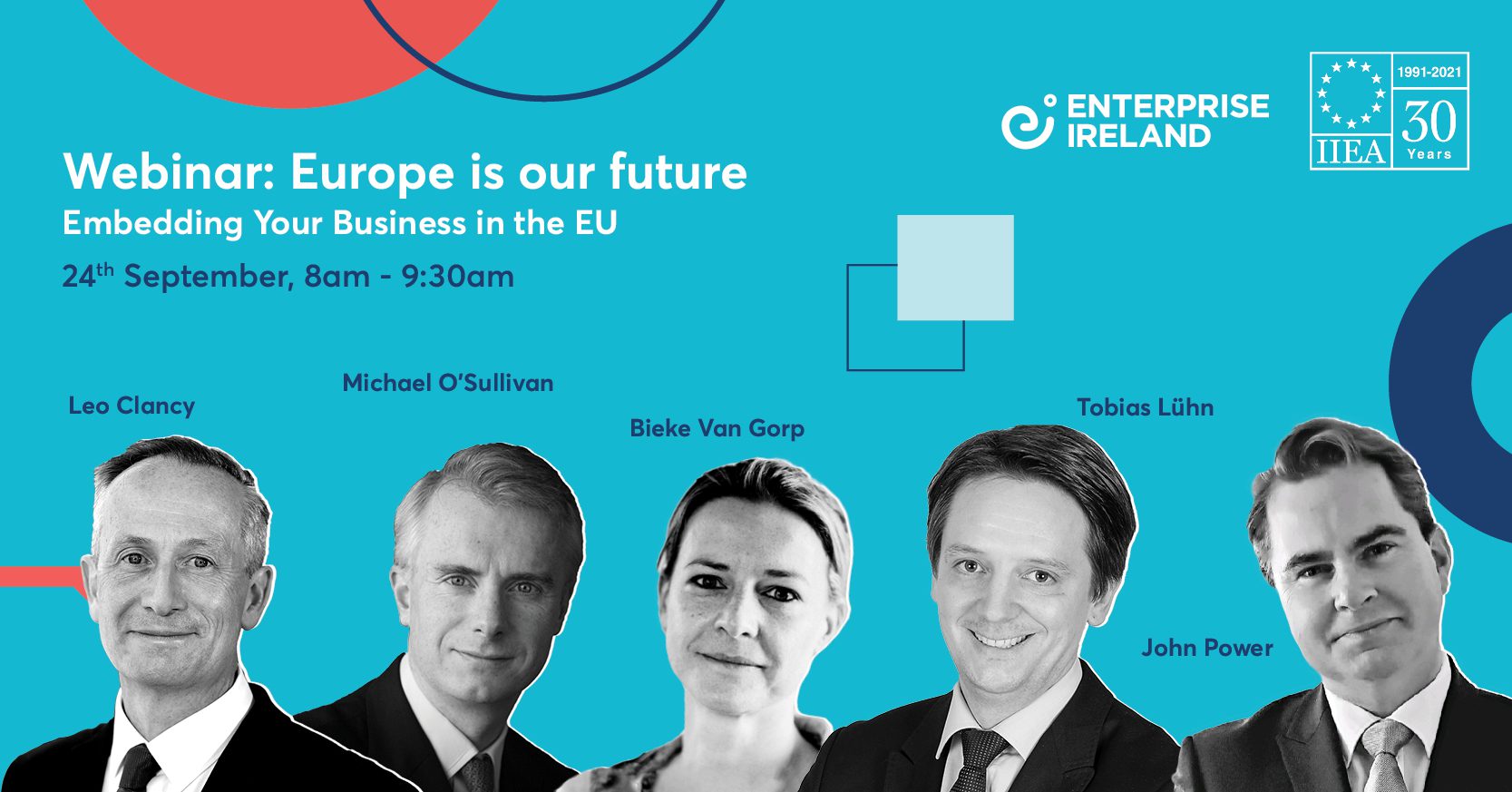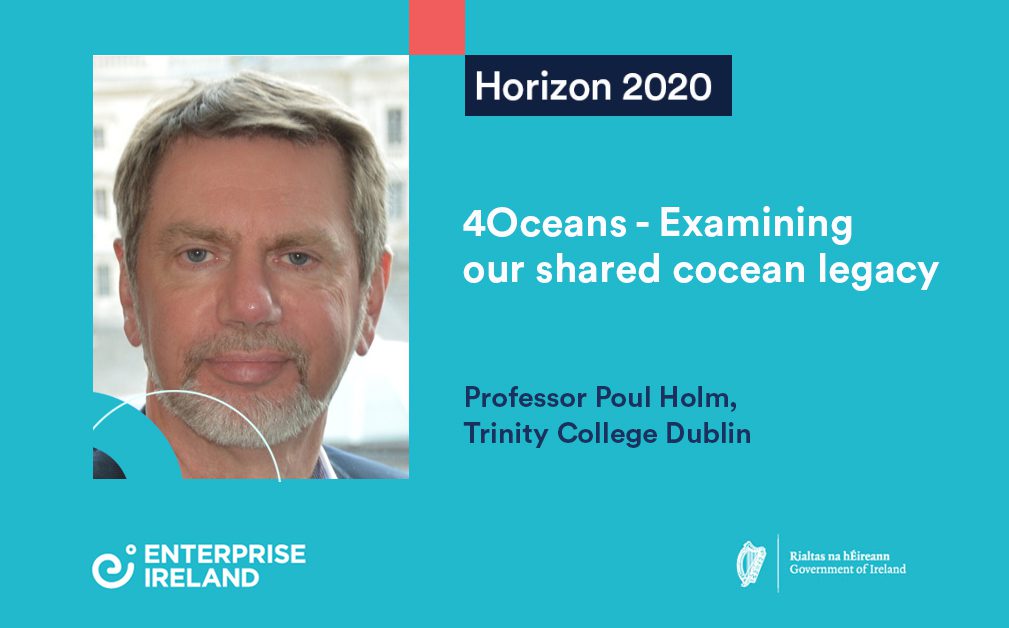International Markets Week 2021: Green agenda and digitalisation key areas for growth

It’s been said many times that exports are crucial to Ireland’s recovery in the post-pandemic world – and Enterprise Ireland is committed to ensuring that Irish companies take advantage of the many opportunities around the world to increase their business and bolster our economy as a result.
A crucial event in the Enterprise Ireland year is International Markets Week, and this year, for the second year running, it was held as a virtual event over five busy days in October 2021.
“When Covid hit, we decided that the event was too important to miss, particularly in the context of a global pandemic,” explains Anne Lanigan, Regional Director, Eurozone, at Enterprise Ireland. “This is a time when it’s even more important for our clients to keep their exports going, so we decided to go onto a virtual platform, with our market advisors available for a full week.
“The market advisors are the boots on the floor, the people who can introduce client companies to potential buyers, so it’s a very practical week for people who want to do business.”
This year, the theme of the event was Global Recovery. Irish Opportunity, recognising that the global economy is experiencing significant disruption – but while this disruption brings challenges, there are also significant opportunities.
“Enterprise Ireland client companies enjoyed excellent overall export growth in 2019 of 8%, with particularly strong growth in the Eurozone and North America of 15% and 16% respectively,” says Anne
“In 2020, these figures stabilised, which was a very good result in the context of a global pandemic, but now we need to get back to 2019 levels of growth.”
Opportunities for Irish companies lie in many areas, including the green agenda and digitisation. Throughout the world, companies are investing in green and digital strategies and governments are putting stimulus packages in place to drive a recovery based on a green and digital future. This investment represents huge opportunity for innovative Irish companies.
“The current disruption in global supply chains also poses significant opportunity,” says Anne. “The drive by manufacturers in developed economies, in particular, to strengthen the reliability of their supply chains so that they are more easily accessed from a geographic and an administrative perspective, creates the opportunity for Ireland to embed themselves in these new supply chains. Ireland’s location on the edge of Europe puts us in a key position to capitalise on this move towards regionalisation of supply chains.”
Finding opportunities
It’s clear from this year’s International Markets Week that Enterprise Ireland client companies have recognised the importance of building a robust strategy to take advantage of these growth opportunities. A total of 710 Enterprise Ireland client companies registered for the event, booking a total of 1,663 meetings with market advisors from across the world.
To get an indication of how companies were faring as the world’s economy recovers from the challenges of Brexit and the Covid-19 pandemic, Enterprise Ireland conducted a survey of the participants ahead of the event. The results were positive: 56% of businesses indicated that they have seen an increase in exports in 2021 compared to 2020, with only 11% reporting a decrease. And, 91% of companies expect sales to increase again in 2022. In terms of trends, the survey revealed that 80% of businesses viewed digitalisation as vital over the next 12 months, while 63% said that advancing their sustainability agenda was a priority.
These results proved accurate throughout the event, which was officially launched by Tánaiste and Minister for Enterprise, Trade and Employment, Leo Varadkar, and Enterprise Ireland CEO Leo Clancy. Lydia Rogers, country manager for Enterprise Ireland in Canada, reported a real hunger in Irish companies to take advantage of the many opportunities out there. “I met many client companies at various stages of their export journey, from those accelerating their international growth and diversifying into new global markets to ambitious start-ups keen to explore the export opportunities in Canada. The week proved that Canada is a very attractive market for Irish companies in many sectors, including cleantech, consumer retail, engineering, life sciences, fintech and BPO, and a large proportion of digital technologies companies.
“In addition, Canada was also identified by many client companies as an entry point and as a lower-cost gateway into the wider North America market.”
And, as predicted, the green agenda and digitalisation opportunities were noted by Lydia as strong trends for Irish companies looking to Canada for growth. “Our team met many companies with innovative digitalisation solutions across travel tech, retail tech, ed tech, digital health, fintech, HR & talent tech, and IoT. There were also many SMEs with innovative solutions in areas including cleantech, mobility, smart energy and environment. Consumer retail was also a significant area of interest – a sector that experienced growth in 2020 despite the challenges of Covid-19. All in all, it was clear from this year’s International Markets Week that Irish companies have recognised Ireland and Canada make great business partners and are ready to reap the rewards from this vibrant and welcoming country.”
View the virtual launch event from Enterprise Ireland’s International Markets Week 2021 below:


























